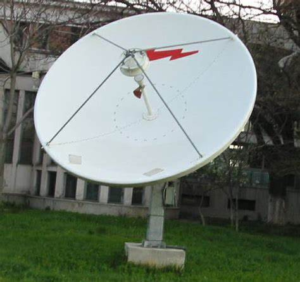Sport watches have evolved significantly, integrating advanced technology to cater to the diverse needs of athletes and fitness enthusiasts. These devices not only track physical activities but also monitor health metrics, providing comprehensive insights into one’s fitness journey. This article delves into the various aspects of sport watches, including their features, benefits, types, and considerations for choosing the right one.
Sport watches, also known as fitness trackers or smartwatches, are wearable devices designed to monitor and record various physical activities and health metrics. They have become essential tools for individuals aiming to enhance their athletic performance and overall well-being.
Key Features of Sport Watches
Activity Tracking: Monitors activities such as running, cycling, swimming, and more, providing data on distance, speed, and calories burned.
Heart Rate Monitoring: Continuously tracks heart rate, offering insights into cardiovascular health and workout intensity.
GPS Functionality: Utilizes GPS to map routes and measure distances accurately, beneficial for outdoor activities.
Sleep Tracking: Analyzes sleep patterns to assess sleep quality and overall health.
Smart Notifications: Receives calls, messages, and app notifications directly on the watch, ensuring users stay connected.
Water Resistance: Ensures durability during water-based activities, with varying levels of resistance suitable for swimming and diving.
Benefits of Using Sport Watches
Enhanced Performance: Provides real-time data to help users optimize their workouts and track progress.
Health Monitoring: Offers continuous health metrics, aiding in early detection of potential health issues.
Motivation: Sets goals and tracks achievements, encouraging users to maintain an active lifestyle.
Convenience: Combines multiple functions into a single device, reducing the need for additional gadgets.
Types of Sport Watches
Multisport Watches: Designed for athletes participating in multiple sports, offering a wide range of activity profiles.
Running Watches: Specialized for runners, focusing on metrics like pace, cadence, and VO2 max.
Triathlon Watches: Tailored for triathletes, supporting seamless transitions between swimming, cycling, and running.
Outdoor Watches: Equipped with features like altimeters, barometers, and compasses for hiking and mountaineering.
Considerations When Choosing a Sport Watch
Compatibility: Ensure the watch is compatible with your smartphone and preferred fitness apps.
Battery Life: Longer battery life is crucial for extended training sessions and outdoor activities.
Display: A clear, readable display is essential, especially during intense workouts.
Comfort: The watch should be lightweight and comfortable to wear during various activities.
Price: Balance the features offered with your budget to find the best value.
Popular Sport Watches in 2024
Garmin Forerunner 55: An affordable GPS watch that tracks distance, speed, and pace, with a battery life of up to two weeks in smartwatch mode.
Garmin Fenix 7 Pro: Recommended for serious athletes due to its robust build, extensive metrics, and solar charging capabilities.
Apple Watch Series 10: Offers comprehensive features and new updates, making it a top choice for iPhone users.
Samsung Galaxy Watch Ultra: Noted for its accuracy and battery life, despite its higher price.
Technological Advancements in Sport Watches
Advanced Sensors: Integration of sensors like ECG and SpO2 for detailed health monitoring.
Solar Charging: Some models offer solar charging capabilities, extending battery life during outdoor activities.
AI Integration: Utilization of artificial intelligence to provide personalized workout recommendations and recovery insights.
Maintenance and Care Tips
Regular Cleaning: Wipe the watch with a soft cloth to remove sweat and dirt.
Software Updates: Keep the firmware updated to access the latest features and improvements.
Proper Storage: Store the watch in a cool, dry place when not in use to preserve battery health.
FAQs
What are the benefits of using a sport watch?
Sport watches offer several advantages:
Performance Enhancement: Real-time data helps optimize workouts.
Health Monitoring: Continuous tracking of vital signs aids in health management.
Motivation: Setting goals and tracking progress encourages consistency.
Convenience: Combines multiple functions into a single device.
What features should I look for in a sport watch?
Consider the following features:
GPS Functionality: For accurate tracking of outdoor activities.
Heart Rate Monitoring: To monitor cardiovascular health.
Battery Life: Longer battery life is crucial for extended training sessions and outdoor activities.
Water Resistance: Essential for swimming and water-based activities.
Compatibility: Ensure the watch syncs with your smartphone and preferred fitness apps.
Are sport watches waterproof?
Many sport watches are water-resistant, with varying depths suitable for swimming and diving. It’s important to check the specific water resistance rating of the model.
Can sport watches track multiple sports?
Yes, many sport watches offer multiple activity profiles, allowing users to track various sports such as running, cycling, swimming, and more.
How accurate are sport watches in tracking activities?
Accuracy varies by model and activity type. High-end models tend to offer more precise measurements.
Do sport watches require a smartphone to function?
While many features are enhanced with a smartphone, most sport watches can operate independently, tracking activities and storing data directly on the device.
How do I maintain and clean my sport watch?
Regular Cleaning: Wipe the watch with a soft cloth to remove sweat and dirt.
Software Updates: Keep the firmware updated to access the latest features and improvements.
Proper Storage: Store the watch in a cool, dry place when not in use to preserve battery health.
Are sport watches suitable for all sports?
Many sport watches offer customizable activity profiles, but it’s essential to verify that the specific sport is supported.
Can sport watches monitor heart rate during intense workouts?
Yes, most sport watches provide continuous heart rate monitoring, even during high-intensity activities.
How do sport watches help in injury prevention?
By monitoring metrics like heart rate, pace, and recovery, sport watches can help identify overtraining and suggest rest periods, aiding in injury prevention.
Accordingly
Sport watches have become indispensable tools for individuals committed to enhancing their athletic performance and overall health. With continuous advancements in technology, these devices offer a plethora of features tailored to diverse needs. When selecting a sport watch, consider your specific requirements, preferred activities, and budget to find the perfect match.
To read more,Click Here.





